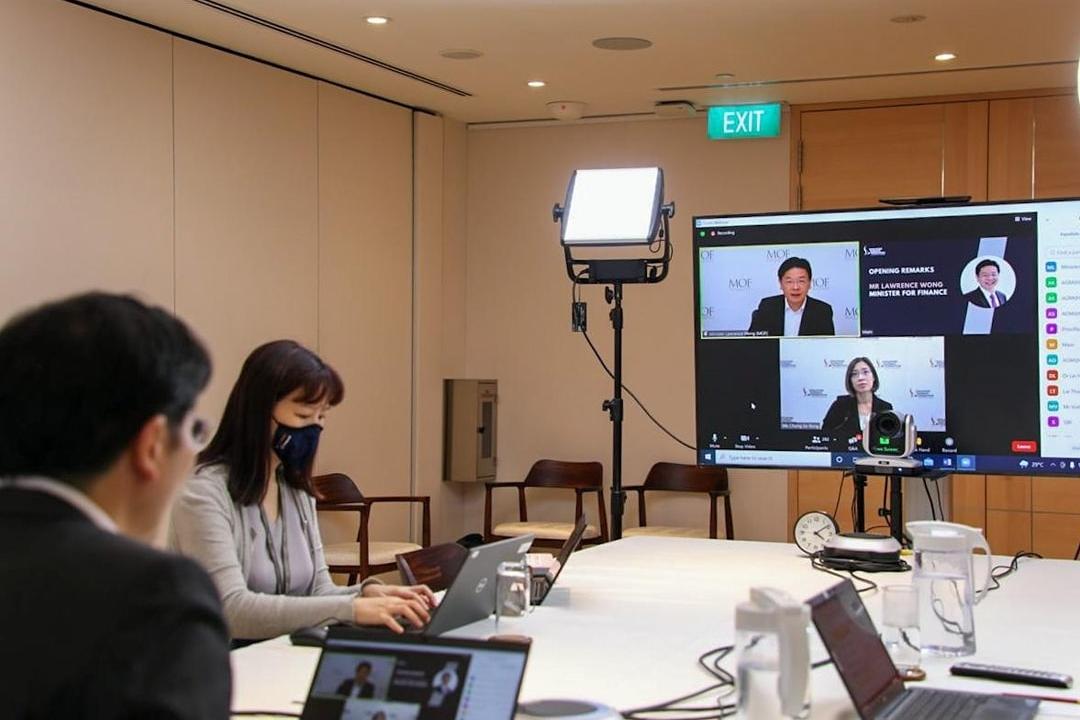Countries that open too quickly before high levels of vaccine coverage will see Covid-19 spikes: Lawrence Wong
Sign up now: Get ST's newsletters delivered to your inbox

Finance Minister Lawrence Wong said countries that open up too quickly, without sufficient protection for seniors, will see high Covid-19 infection rates.
PHOTO: LAWRENCE WONG/FACEBOOK
SINGAPORE - Countries that open up too quickly, without sufficient protection for seniors, will see high Covid-19 infection rates, said Finance Minister Lawrence Wong on Tuesday (June 29).
More people may be hospitalised or even die of the virus, he noted, adding that Singapore is trying to avoid such a situation.
"Before we get to this new phase of high levels of vaccine coverage and a new normal, we are in a transition phase," Mr Wong told business leaders at an online dialogue organised by the Singapore Business Federation (SBF), held in conjunction with the federation's 19th annual general meeting. In this transition period, some restrictions are still required, he said.
The minister was responding to participants' comments that firms are looking forward to the resumption of overseas business missions and expanding overseas. The participants also urged the Government to begin reopening borders by reducing the stay-home notice requirement or doing away with it altogether, and to continue to engage other countries on travel arrangements such as green lanes, travel bubbles and the mutual recognition of vaccination certificates.
Mr Wong, who co-chairs the multi-ministry task force tackling the pandemic, laid out three key measures of the current transition period before Singapore reaches a new phase of high levels of vaccine coverage.
First, some restrictions - such as those on social gatherings - will remain, although they will be progressively eased as vaccination rates go up.
Second, the country will adopt differentiated treatment for those who are vaccinated. For example, larger events may be allowed if everyone is vaccinated and those who are vaccinated may be able to travel more freely.
Lastly, Singapore will progressively open its borders to allow more travel.
"As a small and open economy, we need to reconnect to the world safely, including to be able to resume the flows of workers for sectors which sorely need them, such as construction and marine," Mr Wong said.
Some 350 businessmen - including SBF council members and senior representatives from member companies - tuned in to the session. Some spoke of the challenges they faced in areas such as digitalisation, while others raised concerns over manpower shortages.
In response, Mr Wong urged local businesses to transform quickly or risk losing out to overseas competitors. He also said it is important for companies to help their workers through skills training and job-matching schemes, in order to optimise Singaporean talent.
The discussion also outlined new growth opportunities for Singapore. These include positioning the country as an advanced manufacturing hub, as well as taking advantage of developments in the sustainability sector.
For instance, Singapore plans to attract global companies that are keen to develop urban sustainability solutions for Asia, Mr Wong said. Businesses will benefit in areas such as sustainable design, or leverage Singapore's role as a regional hub to support green financing infrastructure projects.
SBF chairman Lim Ming Yan said that companies and workers must recognise that the coronavirus is here to stay.
"They must put in place more resilient business models and long-term growth plans to remain viable and seize new opportunities," he said, adding: "In the immediate term, they will also need to adjust their day-to-day operations, staff deployment and stakeholder relationships."


